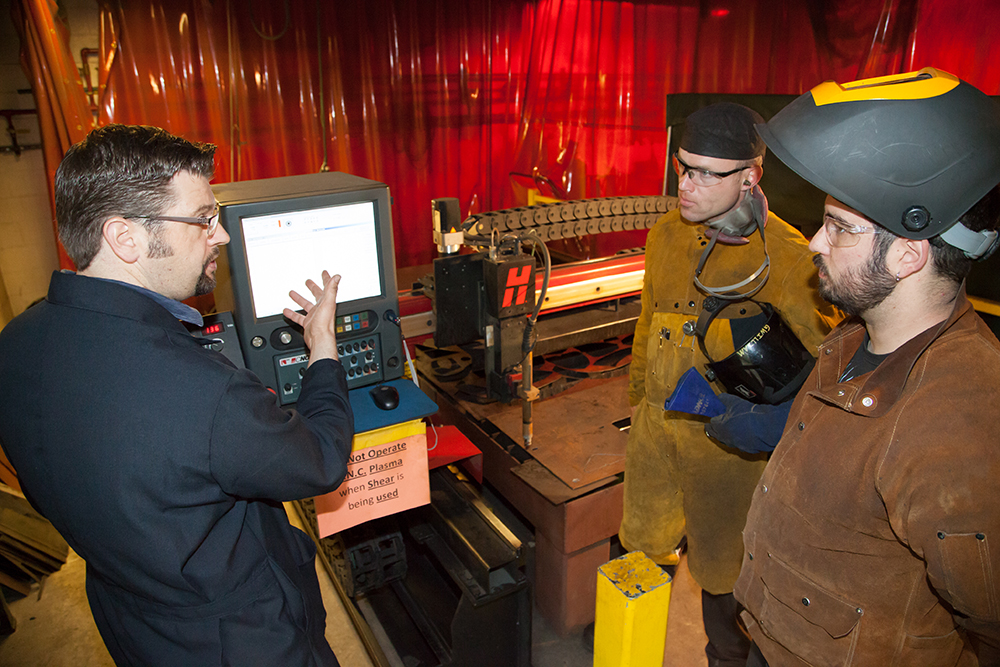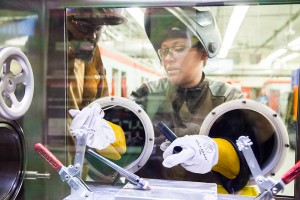
Welding instructor Caleb White, left, shows students Grant Gwilliam and Cody Cook how to use a CNC plasma table, which is used in the computer-assisted cutting of metals. White has been active in developing new curriculum that teaches Clark students fabrication, a skill many local employers are seeking.
This summer, Clark is taking the next step in boosting our region’s economy by introducing a new technical program and adjusting some existing programs to better meet the needs of today’s employers.
Highlights of these changes include:
- A new Industrial Maintenance Technician (IMT) program that combines a selection of Clark’s existing Mechatronics, Machining, and Welding courses to train students on how to provide preventive maintenance and repair support to manufacturing and other mechanical industries. Leaders from regional industry have indicated a strong need for qualified IMTs, and labor surveys show that the average annual wage for IMTs is $43,000.
- Clark’s Welding program is introducing all-new curriculum that not only expands the variety of welding processes taught but teaches students how to use those processes in fabrication, a skill many local employers are seeking.
- Starting fall quarter 2014, Clark’s Mechatronics and Machining programs will begin offering night classes to help accommodate the schedules of current industrial workers who need to expand their skill sets to meet the changing needs of modern industry.
Anyone interested in enrolling in these programs can visit www.clark.edu/gotech to learn more.
All these changes were made in direct consultation with local employers.

Damond Batties looks on while Nicole Doyle works in an argon purge chamber, which is used in welding air-sensitive materials like stainless steel and titanium that are common in modern industry.
“As the largest workforce training provider in Southwest Washington, Clark College continually meets the needs of the business community and ensures that students are equipped with high-demand, relevant skills, whether they are full-time students entering the workforce or incumbent workers developing new skills to improve the productivity of their employers,” said Michelle Giovannozzi, Director of Corporate & Community Partnerships for Clark College Corporate & Continuing Education. “Over the last year, we partnered with regional manufacturers to develop the new Industrial Maintenance Technician program and the revised Welding curriculum in order to support growth through the economic recovery and beyond.”
“The underlying driver for all of Clark College’s Career and Technical Education programs is to provide students with relevant and rigorous educational opportunities that give them the skills that meet the workforce demands for our local and regional industries,” said Genevieve Howard, who as Clark’s Dean of Workforce, Career & Technical Education oversees the college’s Mechatronics, Machining, and Welding programs, as well as such well-regarded programs as Computer-Aided Drafting & Design and Automotive Technology.
Clark College has long served as the premier resource for training skilled technicians who meet the needs of this region’s industry. Through advisory committees and regular outreach, the college has developed partnerships that allow it to respond quickly to the needs of local employers. These new changes are part of that practice—a practice that has made the college Southwest Washington’s best source for career and technical training.
Photos: Clark College/Jenny Shadley












